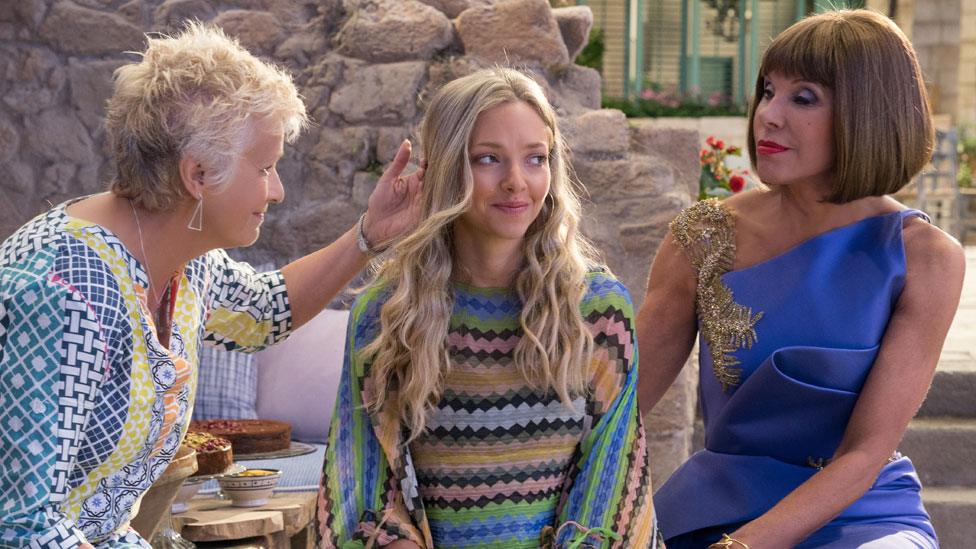Will Gompertz reviews Mamma Mia: Here We Go Again ★★★☆☆
- Published
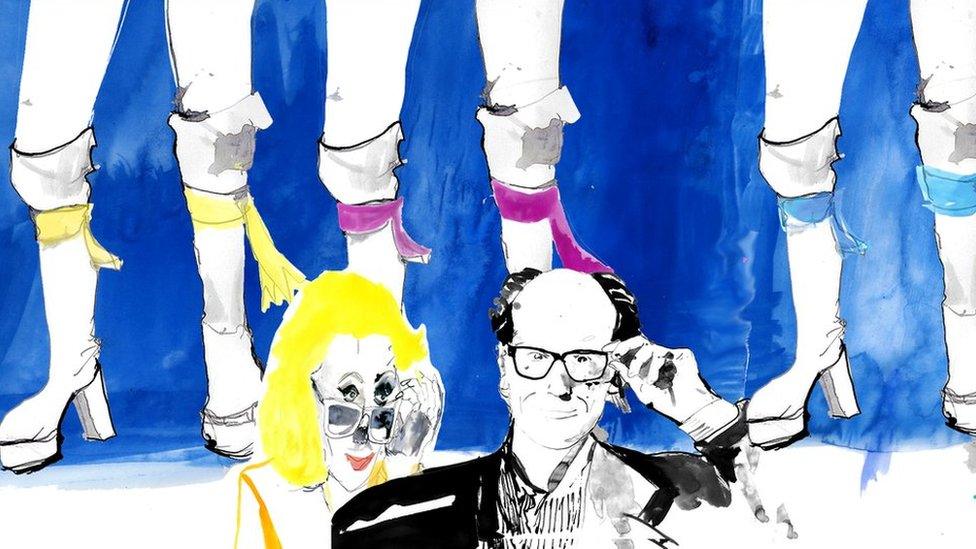
The well-dressed lady who introduced the film was friendly but firm: "Anyone who doesn't like spandex, glitter or Abba", she said, "should leave".
Nobody did.
The mood of the audience just got even more excitable.
It was the world premiere of Mamma Mia! Here We Go Again and the cinema was packed full of worshippers of kitsch entertainment for whom spandex, glitter and Abba are the Holy Trinity.
Her advice stands, though. If lightweight, escapist, cheesy, tongue-in-cheek summer movies are not your bag this review probably isn't for you. If, however, you are one of the millions of people who enjoyed the 2008 film Mamma Mia! and want to know if the sequel is any good, then read on.
It starts like my old 50cc Suzuki moped, which is to say, badly. We're back on the idyllic Greek island of Kalokairi where Sophie (Amanda Seyfried) is once again sending out invitations to her "dads" asking them to join her for a celebration.
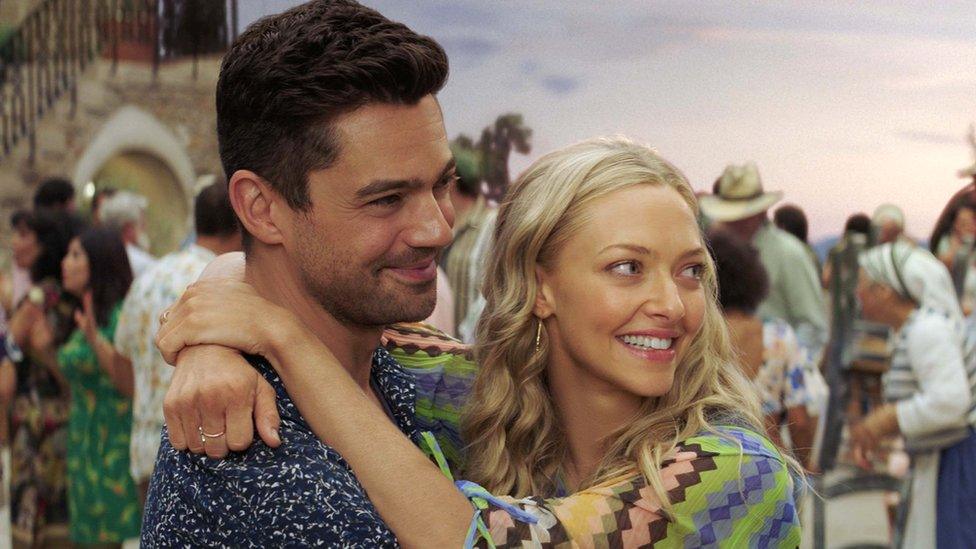
The two lovers: Sky (Dominic Cooper) and Sophie (Amanda Seyfried)
She then sings a dreary version of Thank You For The Music, which is wetter than Skegness in February, before having a whiny transatlantic phone call with her partner Sky (Dominic Cooper).
I've had more enjoyable hospital appointments.
But then, just as I was reaching for my jacket, salvation came in the all-singing, all-dancing, scene-grabbing, screen-igniting presence of the wonderful Lily James.
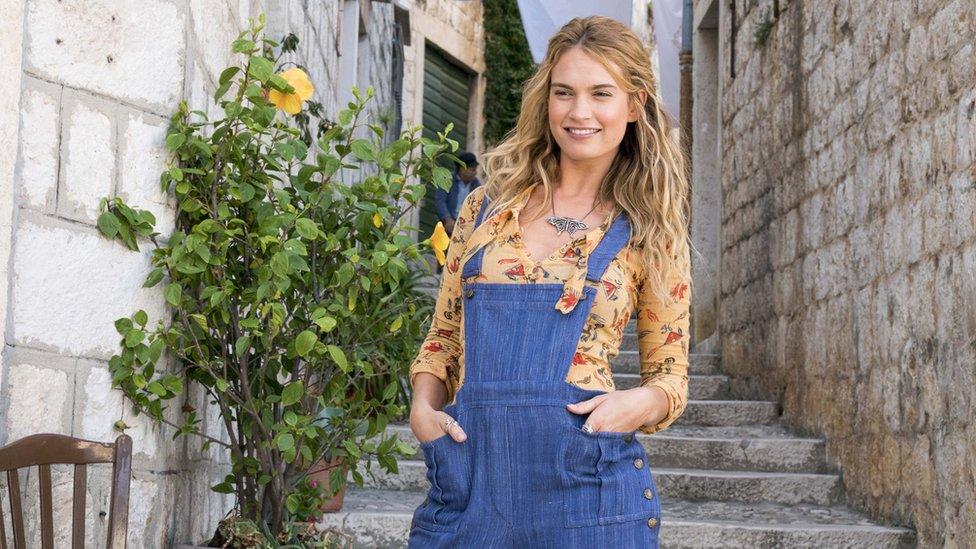
Lily James as Young Donna, ignites the screen with her presence
If Meryl Streep owned the 2008 version playing the middle-aged beatnik Donna who had settled on a Greek island, then Lily James makes this prequel/sequel hers as the recently graduated, free-loving young Donna who goes through men quicker than Donald Trump hires special advisers.
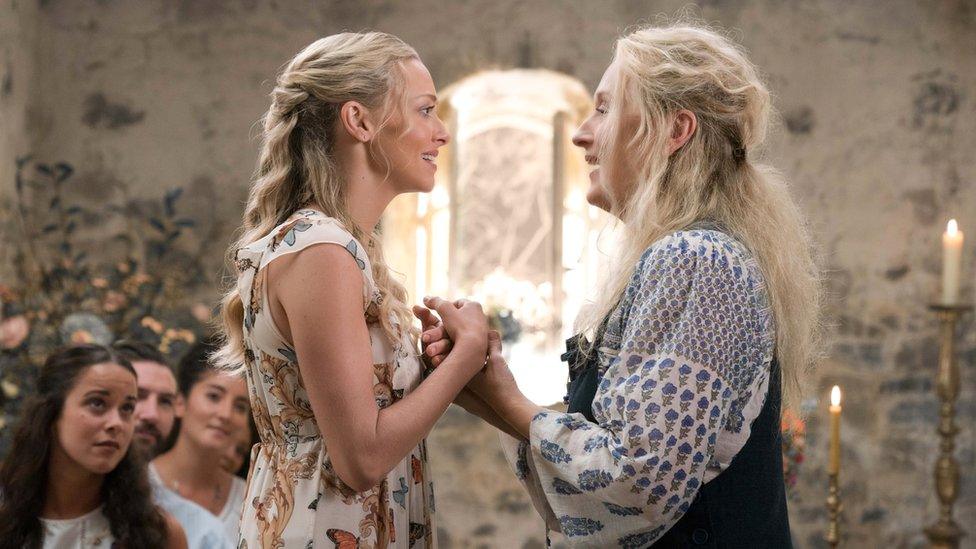
Sophie (Amanda Seyfried) together with her dearest mum Donna (Meryl Streep)
The plot is very similar to the original both in terms of quality (it's as rickety as the shack Donna does up) and storyline. This time though, its focus isn't Donna's present but her past.
We meet the three young men she slept with in rapid succession, which forms the dramatic basis of both movies: anyone of them could be her daughter Sophie's dad.
Hugh Skinner does what he always does and plays a clueless toff, which in this instance is the young Harry.
Josh Dylan (who can hold a note) is the young Bill, and Jeremy Irvine makes up the trio as young Sam. All three play their part, which is to let Lily James get on with it and bring the film to life.

Lily James (Young Donna) with Josh Dylan (Young Bill), who plays one of her three lovers
Along the way she is helped by her besties, Tanya and Rosie; played as twenty-somethings by Jessica Keenan Wynn and Alexa Davies, and in later life - in a very welcome return - by the brilliant Julie Walters and vampish Christine Baranski.
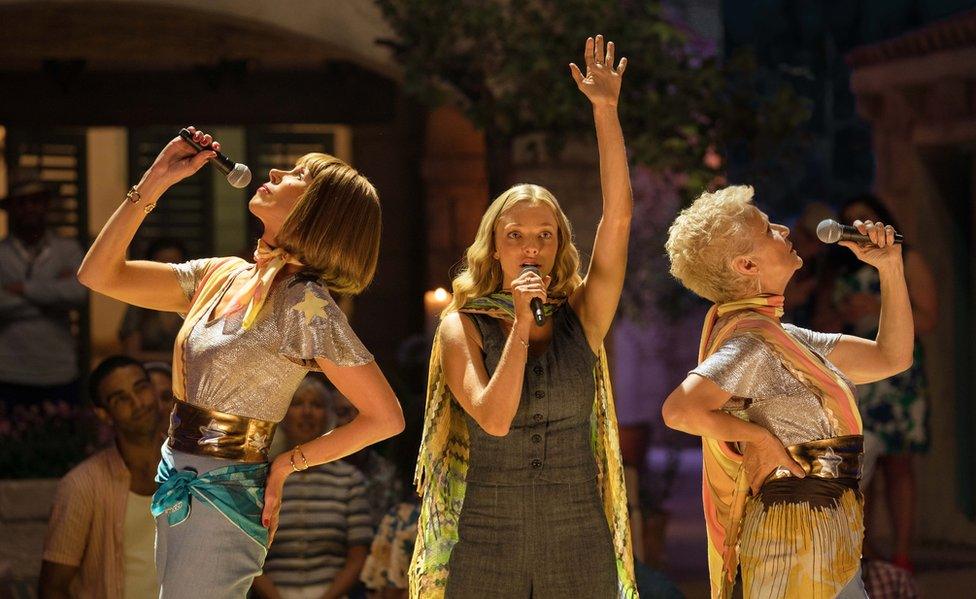
Best friends: Christine Baranski (Tanya), Amanda Seyfried (Sophie) and Julie Walters (Rosie)
And so the film moves tidily towards its inevitable conclusion: a grand finale back on the island where everybody gathers for a feel-good finish.
The risk here is of adding a pinch too much saccharine, which leaves even the most ardent camp comedy consumer feeling a little sick.
The film avoids this (just) by introducing a new character: Sophie's diva of a grandmother, played in a perfectly pitched cameo by Cher.
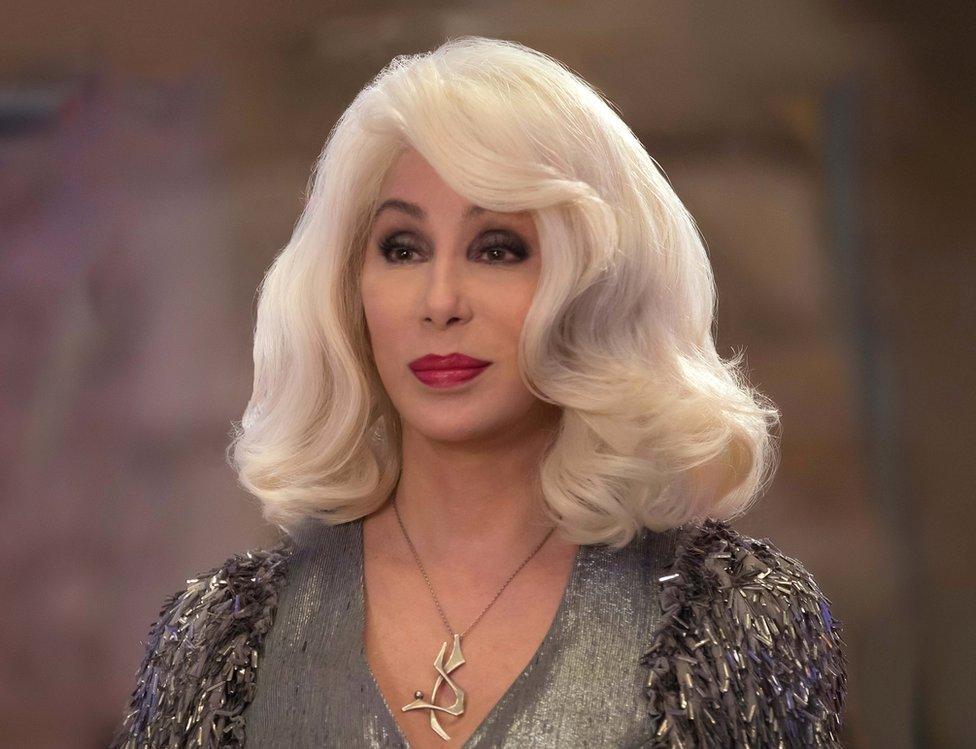
Cher plays perfectly pitched grandmother, Ruby
When she breaks out into a full-throttled rendition of Fernando, the audience spontaneously applauded, and then could hold itself back no longer and launched into a group sing-along.
It is a mark of the producers' astute management of their blockbuster musical franchise: they know how to hit all the right notes, from self-parody to star casting.
The slickness of their operation is reflected in Ol Parker's direction, which is right on the Money, Money, Money.
He moves between backstory and the present day with neat pan-and-cut edits that are as seamless as some of the 70s fashion outfits the cast wear to crank out Abba's marvellous back catalogue.
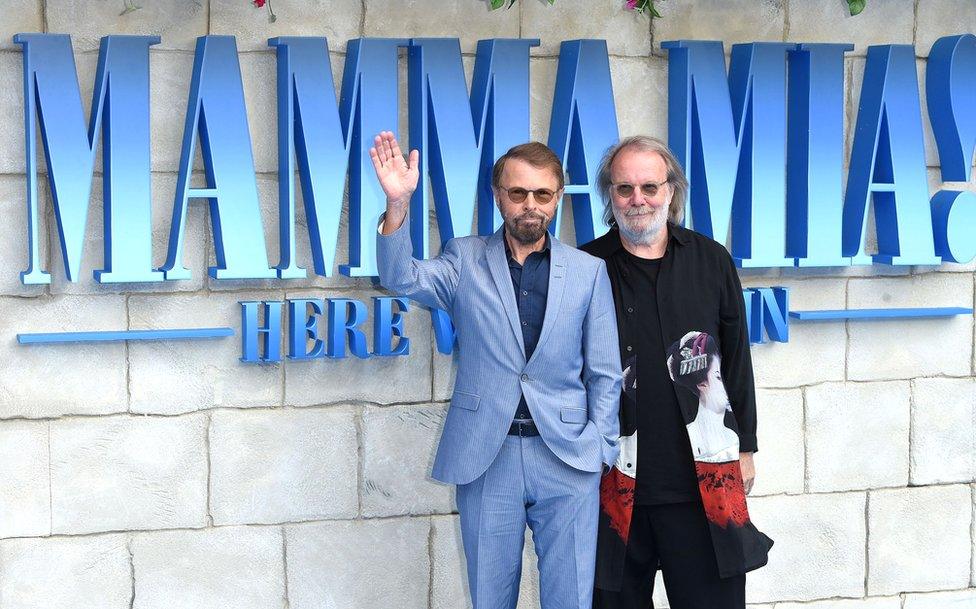
ABBA's Bjorn Ulvaeus and Benny Andersson, who wrote the music and lyrics, at the world premiere in London
There is a period about two-thirds of the way through when the film starts to drift as Pierce Brosnan's voice did in the original (it passes muster in a brief outing this time around).
The task of finding a motivation for the myriad of characters to pitch up at the party leads to some hammy plot devices, which feel forced even in a genre where hammy plot devices are the norm.
But then Cher makes her grand entrance, Meryl returns - and the audience left happily ever after.
- Published20 July 2018
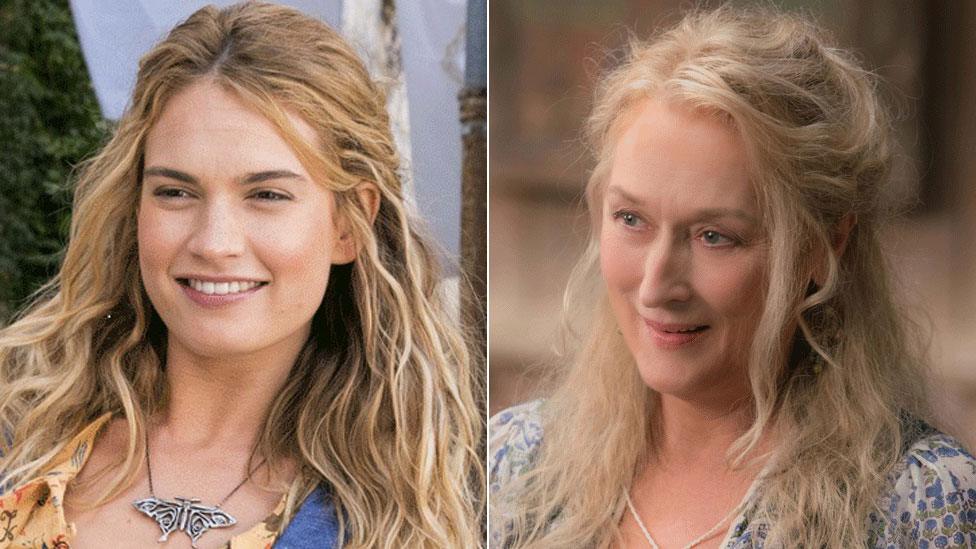
- Published22 December 2017
